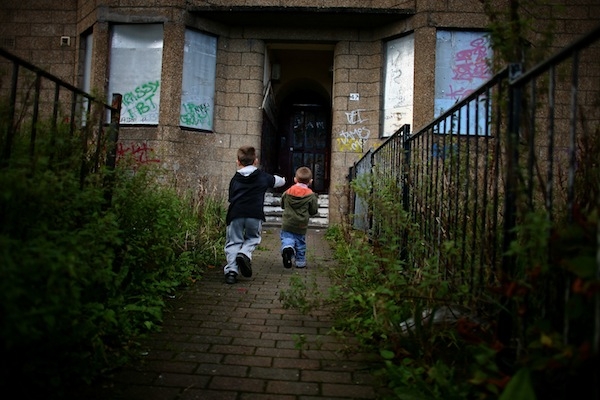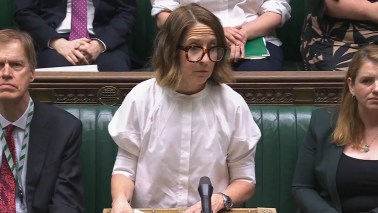Yesterday’s reshuffle isn’t the only story in town. Save the Children, a global charity, has today started to fundraise for children in Britain whom it says are affected by the government’s cuts. It is now run by Justin Forsyth, an ex-aide to Gordon Brown, who will have understood the political implications of the research: that coalition policies are making child poverty worse. The problem is that this analysis mistakes the nature of poverty in Britain, and – worst of all – the ways of alleviating that poverty.
The root problem is a confusion of low income as a cause of these issues, rather than the symptom of wider social failings it often represents. This basic failure has characterised political programmes and grand government schemes for years. The starting point has been that poverty (and child poverty) means living below an arbitrary income line – set as it currently is at 60 per cent of the national median – and, accordingly, the way to fight poverty is to redistribute wealth in order to move households just above said line.
Based on this measure, a family can go to bed on a Monday night ‘in poverty’ and wake up on a Tuesday morning out of it, thanks to minor spreadsheet tweaks to welfare and tax credits made in Westminster. Ministers get their headline and people get a few extra pounds, but what for example would have changed for the child of a drug-addicted parent? Nothing at all.
Even more absurd is the fact that during a recession, poverty on this measure is often reduced as national average incomes fall and benefits tend to remain stable. Recent child poverty figures revealed hundreds of thousands of children were ‘lifted’ out of poverty as a result of the latest recession, for example.
Unsurprisingly this ‘poverty plus a pound’ approach has failed to change lives. Look no further than the previous Government. Labour ministers spent an eye-watering £150 billion on tax credits between 2004 and 2010 in an attempt to chase targets and lift people above the so-called poverty line. The result? A one percentage point reduction in the proportion of children living below the poverty line.
Such a simplistic approach fails because it takes no account of the many damaging social problems that cause low income – such as family instability and breakdown, educational failure, drug and alcohol addiction or mental ill-health. As our team at the Centre for Social Justice has travelled to the poorest parts of the UK to meet and listen to those in poverty, we have been struck by how this breakdown ruins people’s chances of avoiding or escaping poverty. Much of it is documented in our report Breakthrough Britain.
Some of the Save the Children report is insightful. Stories of financial hardship should move us to urgent action. But if government spending was the solution to child poverty, it would indeed have been eradicated under the last government.
The conclusion calls for certain responses that unfortunately, as with countless other child poverty reports over the years, fail to tackle any of the root causes of poverty. Recognising and confronting these root causes of poverty would be a much better place to begin. A family’s level of income matters, but so often it is determined by factors politicians have ignored for too long.
Becoming fixated with helping families to stay together, enabling parents to find and progress in work to become self-reliant, and delivering inspirational education for children in the most disadvantaged neighbourhoods should be our starting point. A stable family with two parents in work is much less likely to live in poverty. If we want to reduce the number of children caught in a cycle of disadvantage, we have to start by asking what sends them there in the first place.
Christian Guy is Managing Director of the Centre for Social Justice.






Comments